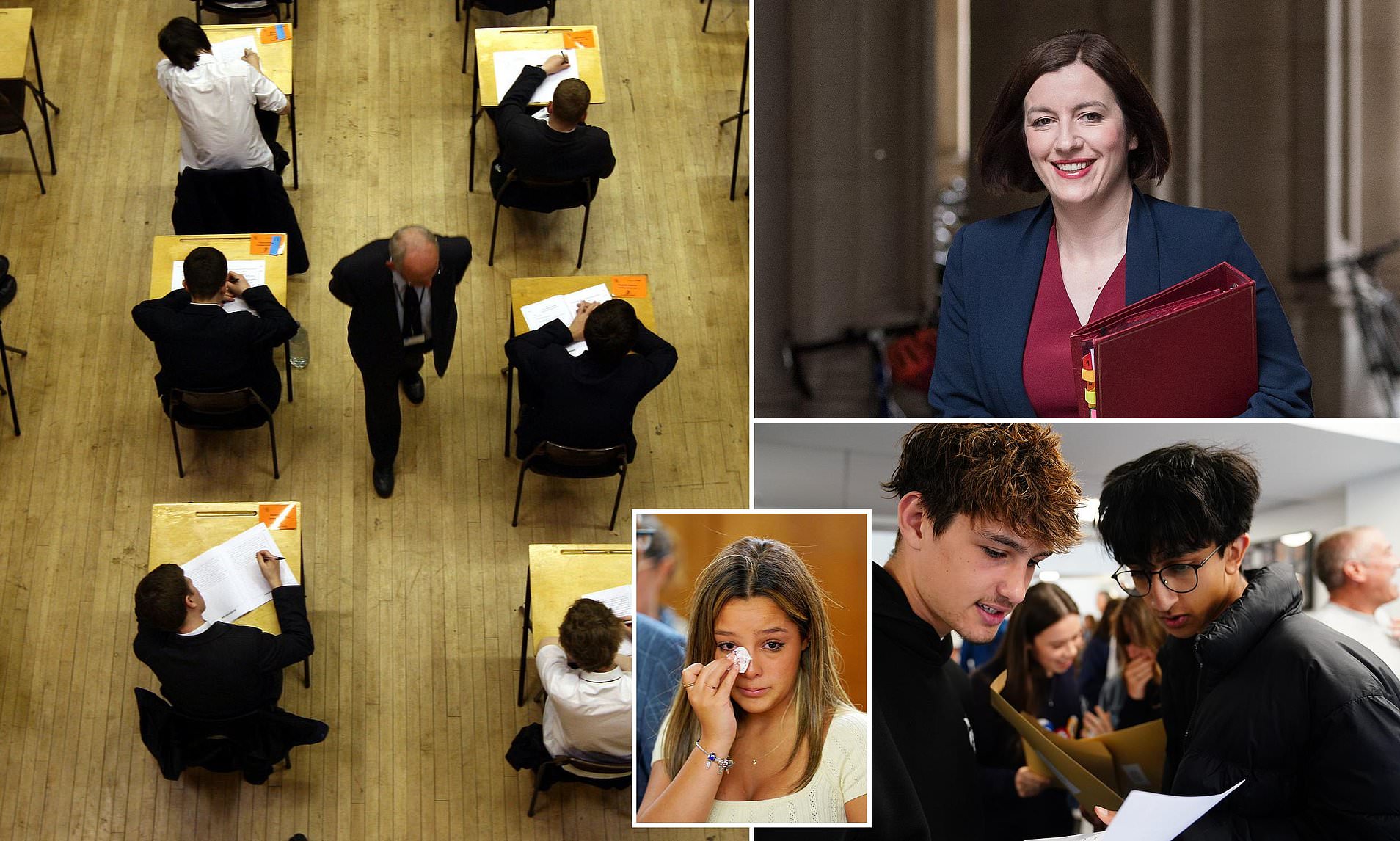English and Maths GCSE Resits at Risk as Pass Rate Hits 10-Year Low

GCSE Resits for English and Maths Under Scrutiny
The current system of GCSE resits for English and Mathematics is under intense scrutiny as pass rates for these core subjects have reached their lowest levels in a decade. Students who fail to achieve at least a grade 4 in either subject are required to retake the exams repeatedly until they meet this standard, with the requirement extending up to the age of 18. However, recent results indicate a concerning trend, with the overall pass rate for English dropping to 60.2%, marking the worst performance since 2004, while the pass rate for maths fell to 58.3%, down from 59.5% in the previous year.
This decline has raised concerns about the effectiveness of the current resit model, particularly among vulnerable groups such as white working-class children, who are disproportionately affected. Education Secretary Bridget Phillipson highlighted that these students are among the least likely to meet the targets set for these subjects. The situation has prompted calls for a fundamental reevaluation of the approach to GCSE resits, with some suggesting that the system may be failing to support students adequately.
A Growing Crisis in Resits
The number of students retaking GCSEs in English and maths has reached an all-time high, according to Jill Duffy, chief executive of OCR exam board. She warned that the current system is facing a "resit crisis," with just 23.1% of students achieving a standard pass in English and only 18.2% in maths. These figures underscore the challenges faced by students who are struggling to meet the required standards.
A Whitehall source suggested that the government may consider scrapping compulsory resits altogether to address the growing number of students failing these subjects. A review panel has proposed a potential "building block" replacement, where students who fail could be assessed on their skills rather than being forced to retake exams. This approach would shift the focus from repeated testing to practical skill development, aiming to provide more meaningful support for students who are falling behind.
Calls for Reform and Alternative Assessments
The review of curriculum and assessments, led by Professor Becky Francis and commissioned by Ms. Phillipson, is expected to recommend significant changes to the mandatory resit policy. In an interim report published in March, Prof. Francis acknowledged the importance of achieving a grade 4 in these subjects for future opportunities but also called for a more nuanced approach to ensure that as many learners as possible can succeed.
Labour MP Helen Hayes, chair of the Commons' education committee, has also urged for more practical and applied alternatives for students unable to achieve a grade 4 in maths. This aligns with broader calls from education leaders for a shift away from the current resit model, which many argue is demoralizing and ineffective.
Gender Gap and Pandemic Impact
Despite progress, the gender gap in GCSE attainment remains significant, with boys slowly catching up to girls but still lagging behind in key areas. Pepe Di'lasio, general secretary of the Association of School and College Leaders, described the resit process as "utterly demoralising" for students, emphasizing the need for better support systems.
The impact of the pandemic has also been felt in regional disparities, with disadvantaged students being most severely affected. Paul Whiteman, general secretary of school leaders’ union NAHT, stated that the current resit policy is "not fit for purpose" and called for more engaging alternatives to GCSEs in English and maths at Key Stage 4.
Changing Grading Systems and Trends
In England, the grading system for GCSEs has transitioned from A*-G to a 9-1 scale, with 9 being the highest and 4 roughly equivalent to a C grade. While top grades (A/7) have remained relatively stable over the past 15 years, the pandemic caused a surge in grade inflation due to teacher assessments. Although grades have since been adjusted, they remain higher than pre-pandemic levels.
Overall UK entries for GCSEs have seen a slight decline, with a 0.4% drop compared to 2024. However, there has been a notable increase in entries from students aged 17 and over, highlighting the growing participation of older students in these exams.
As the debate over GCSE resits continues, the need for comprehensive reform becomes increasingly evident. With rising failure rates and a growing number of students caught in the resit cycle, the education system must find innovative solutions to support all learners effectively.

Comments
Post a Comment